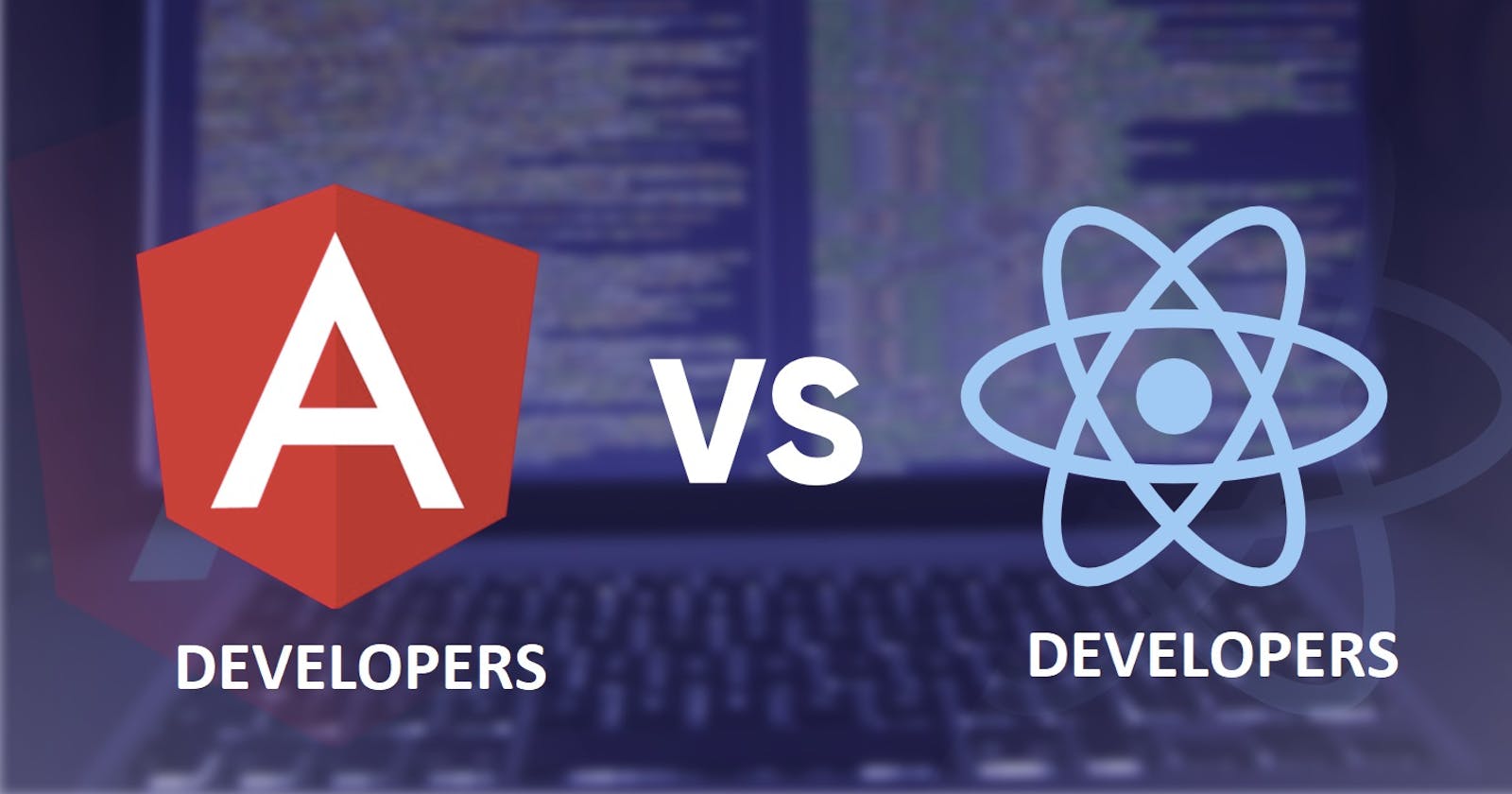React and Angular are both popular JavaScript frameworks used for building dynamic web applications. Here are some key differences between React and Angular:
- Architecture:
React: React is a library for building user interfaces. It focuses on the view layer and follows a component-based architecture, where the UI is divided into reusable components.
Angular: Angular is a comprehensive framework that provides a complete MVC (Model-View-Controller) architecture. It encompasses not just the view layer but also provides tools and features for managing state, routing, and form handling.
- Learning Curve:
React: React has a relatively simpler learning curve compared to Angular. It has a smaller API surface area, and developers can start building components with a basic understanding of JavaScript and JSX (a syntax extension for JavaScript).
Angular: Angular has a steeper learning curve. It has a larger and more complex API, and developers need to learn TypeScript (a statically-typed superset of JavaScript) and understand various Angular concepts such as dependency injection and decorators.
- Data Binding:
React: React uses a unidirectional data flow, also known as one-way data binding. Data flows from parent components to child components through props, and React encourages the use of immutable data and state management libraries like Redux.
Angular: Angular supports both one-way and two-way data binding. Two-way data binding allows automatic synchronization of data between the model and the view, simplifying form handling and reducing the need for manual updates.
- Community and Ecosystem:
React: React has a large and vibrant community with extensive third-party libraries and component ecosystems. It is widely adopted and has a rich ecosystem of tools, libraries, and community support.
Angular: Angular also has a strong community and ecosystem, but it is relatively smaller compared to React. However, Angular provides a more opinionated approach to development with its built-in tools and libraries, reducing the need to rely on external dependencies.
- Size and Performance:
React: React has a smaller footprint and is known for its performance optimizations, such as the virtual DOM, which efficiently updates only the necessary components.
Angular: Angular applications tend to have a larger bundle size compared to React due to its comprehensive nature. However, Angular's performance is optimized through techniques like Ahead-of-Time (AOT) compilation.
Ultimately, the choice between React and Angular depends on factors such as project requirements, team expertise, scalability needs, and personal preferences. React offers flexibility and a focused view layer, while Angular provides a complete framework with a robust architecture and built-in tools for larger-scale applications.
When it comes to building dynamic web applications, React and Angular are two popular JavaScript frameworks that businesses often consider. However, choosing between hiring a React developer or an Angular developer can be a crucial decision. In this article, we will explore the pros and cons of hiring a React developer versus an Angular developer, helping you make an informed choice for your development needs.
React Developer: The Pros 1.1. Popularity and Market Demand: React has gained immense popularity and has a thriving developer community, making it easier to find skilled React developers. 1.2. Modular and Flexible: React's component-based architecture promotes reusability, code maintainability, and scalability, allowing for efficient development and easy collaboration. 1.3. Performance: React's virtual DOM efficiently updates only the necessary components, resulting in faster rendering and enhanced performance, particularly for large-scale applications. 1.4. React Native: React's ability to share code between web and mobile platforms through React Native can be advantageous if you plan to build cross-platform applications.
React Developer: The Cons 2.1. Learning Curve: React has a steeper learning curve compared to some other frameworks, which may require additional time for developers to become proficient. 2.2. Fewer Built-in Features: React is primarily focused on the view layer, which means you might need additional libraries or frameworks for routing, state management, or form handling.
Angular Developer: The Pros 3.1. Comprehensive Framework: Angular is a full-fledged framework that provides a robust set of features out-of-the-box, including routing, state management, and form handling. 3.2. TypeScript Integration: Angular is built with TypeScript, a statically-typed superset of JavaScript, which enhances code maintainability, error detection, and scalability. 3.3. Strong MVC Architecture: Angular follows a strict Model-View-Controller (MVC) architecture, making it suitable for complex applications that require structured code organization and maintainability.
Angular Developer: The Cons 4.1. Learning Curve: Angular has a steeper learning curve compared to React, requiring developers to invest more time in understanding the framework's concepts and conventions. 4.2. Larger Bundle Size: Angular applications tend to have a larger bundle size compared to React, which might impact the initial load time of your application.
Conclusion:
Both React and Angular have their strengths and weaknesses when it comes to hiring developers for your web application project. Consider the specific needs and requirements of your project, the availability of skilled developers, and the learning curve involved. Ultimately, the choice between hiring a React developer or an Angular developer should align with your project goals, scalability needs, and the expertise available within your development team.
